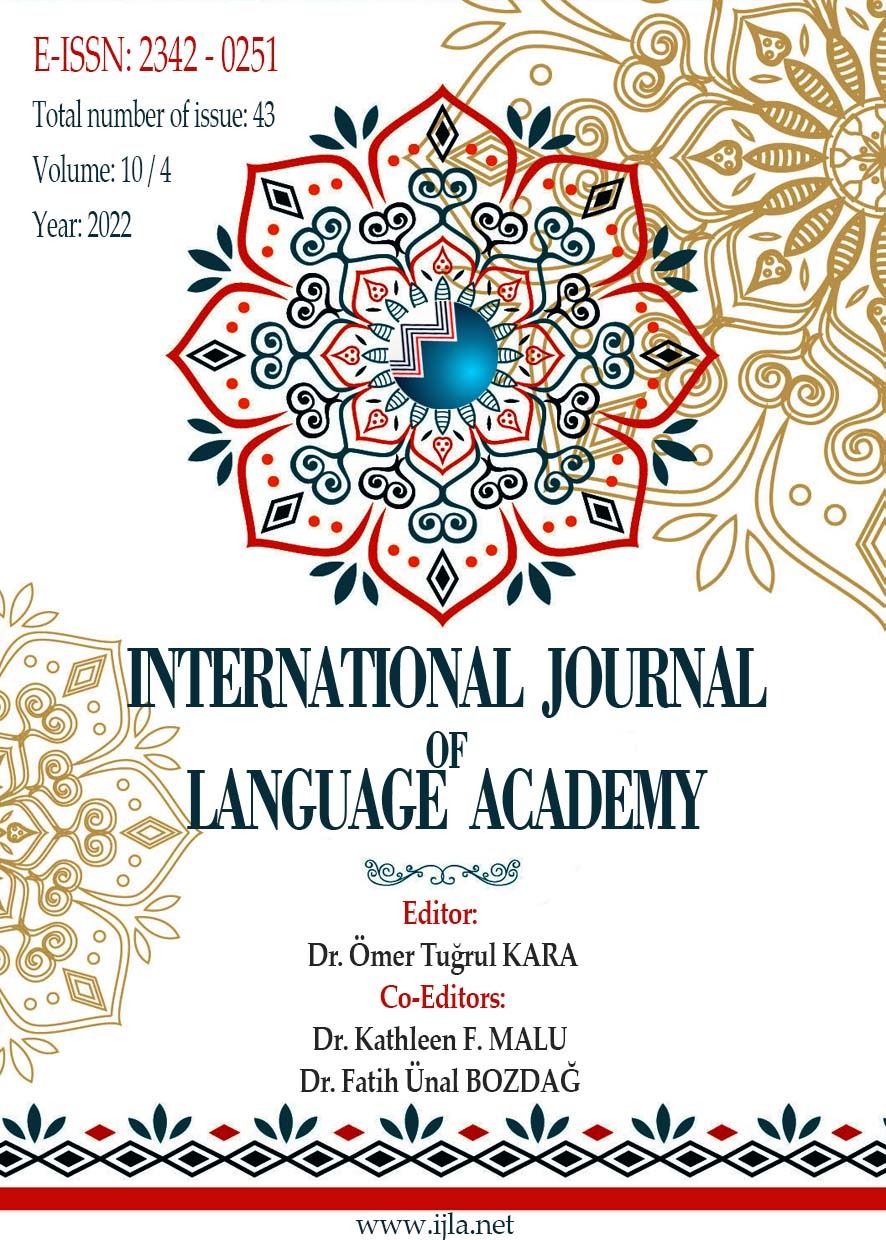Author :
Abstract
2021 yılı, Yunus Emre’nin vefatının 700. yılı olması nedeniyle UNESCO tarafından Yunus Emre’yi anma yılı olarak kabul edildi. Şiirlerini Türkçe olarak seslendiren Yunus Emre yüzlerce yıldır halkın gönlünden silinmedi. O, tahtı gönüllerde olan bir sûfi idi. Verdiği mesajlar evrenseldi; bu nedenle dünyada da oldukça fazla tanındı ve takdir edildi. Ancak onun kalbinde olan Allah aşkı ve insan sevgisi inandığı inanç sisteminden kaynaklanmaktaydı. Onun için esas olan Allah aşkıydı ve insanı da Allah’ın bir eseri olduğu için seviyor ve yüceltiyordu. Bu anlayış aynı zamanda Türk-İslam tasavvufunun da temelini teşkil ediyordu. Onun ortaya çıkışı biraz da devrin şartları nedeniyle idi. Çünkü onun yaşadığı dönemde Anadolu’da isyanlar, kavgalar ve savaşlar vardı. O ise İslam’ın barış, kardeşlik, sevgi ve hoşgörü yönünü temsil etmek istiyordu ve öyle de oldu. Onun düşüncesi insanları ayrıştırmamak ve ötekileştirmemek üzerine kuruluydu. Onun bakış açısı elbette batılılardan farklı idi. Bu farkın temel nedeni Allah’ın isim ve sıfatlarının insanda tecelli bulmasıydı. Bu durum ontolojik olarak insanın varlığının Allah’ın varlığına bir delil oluşturmasıydı. Ayrıca o, sûfi meşrep bir şairdir ve İslam’ın evrensele bakan hoşgörülü (ılımlı) yüzüdür. Aynı zamanda o, İslam’ın evrenselleşmesine de söylediği Türkçe şiirleriyle ve sözleriyle katkı sunmuştur. Anadolu insanı onun şiirleriyle ruhunu beslemiş ve onun şiirleri Anadolu’da halk felsefesinin oluşumuna da önemli katkı sunmuştur.
Keywords
Abstract
The year 2021 has been accepted by UNESCO as the year of commemoration of Yunus Emre, as it is the 700th anniversary of Yunus Emre's death. Yunus Emre, who wrote his poems in Turkish, has not been forgotten by people for hundreds of years. He is enshrined in the heart of people as a Sufi. His messages are universal; For this reason, it has been widely recognized and appreciated worldwide. However, the love of Allah and humanity in his heart stemmed from his belief system. The main thing for him is the love of Allah, and he loved and glorified human beings because he is a shadow of Allah. This understanding is also the basis of Turkish-Islamic mysticism. Its emergence is partly due to the conditions of the period. Because during his lifetime, there were rebellions, fights, and wars in Anatolia. On the other hand, he wanted to represent the peace, brotherhood, love, and tolerance aspect of Islam, and it did. His thoughts are based on not discriminating and factionalizing people. His point of view is different from that of the westerners. The main reason for this difference is the manifestation of the names and attributes of Allah's in human beings. This is the ontological fact that the existence of human beings constitutes proof of Allah's existence. In addition, he is a Sufi poet and is the tolerant (moderate) face of Islam that looks at the universal. At the same time, he contributed to the universalization of Islam through his Turkish poems and words. Anatolian people fed their souls with his poems, which also contributed significantly to Anatolia's formation of folk philosophy.
Keywords
- Anadol, C. (1993). Gönüller sultanı Yunus Emre. İstanbul: Kamer Yayınları.
- Bars, M.E. ve Irmak, Y. (2019). Tasavvuf ve halk inancı ışığında Yunus Emre’de toprak imgesi. Bingöl Üniversitesi Sosyal Bilimler Enstitüsü Dergisi, 9(18), 1199-1211.
- Buhr, M., Kosing A. (1978). Marksçı-Leninci felsefe sözlüğü. İstanbul: Konuk Yayınları.
- Doğan, M. (1986). Büyük Türkçe sözlük. İstanbul: Birlik Yayınları.
- Frolov, İ. (1991). Felsefe sözlüğü. (Çev. Aziz Çalışırlar). İstanbul: Cem Yayınevi.
- Gökdemir, S., Gökdemir A. (1990). Yunus Emre-güldeste. Ankara: Kültür Bakanlığı Yayınları.
- Gülyurt, A. (2021). Anadolu tasavvufu. İstanbul: Lejand Kitap.
- Güzel, A. (1991). Yûnus Emre ve Hümanizm. IV. Milletlerarası Türk Halk Kültürü Kongresi Bildirileri (Yûnus Emre seksiyonu). Ankara: Kültür Bakanlığı Yayınları, 41-70.
- Hatemi, H. (1991). Türk aydını-dünü ve bugünü. İstanbul: İşaret Yayınları.
- Kurnaz, C. (2009). Bana seni gerek seni. Atatürk Ü. Türkiyat Araştırmaları Enstitüsü Dergisi. Erzurum, 39, 147-160.
- Özdemir, C. (2021a). Bir şiir şerhi: Yunus’un dünyasında derviş kimliği. Teke Dergisi, 10(2), 563-577.
- Özdemir, C. (Ed). (2021b). Yunus Emre’de terkler. Anadolu’nun üç ulu ereni (Yunus Emre, Hacı Bektaş Veli ve Ahi Evran). Çanakkale: Paradigma Akademi, 81-113.





